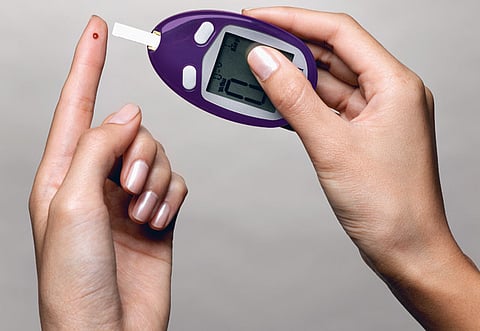Massive anti-diabetes campaign launched in UAE
Dubai authorities take proactive approach to fight diabetes

Dubai: Desperate to staunch the enormous cost of treating diabetes and its complications, Dubai on Wednesday started a three-year campaign against the disease.
The UAE authorities are aware that if nothing is done, the rate of prevalence of diabetes will jump to 35 per cent of the population within 10 years.
The UAE is second to Nauru — an island nation in Micronesia in the South Pacific — in the list of nations with the highest number of diabetics. At present, about 20 per cent or one in every five of the UAE population has diabetes.
"We have moved beyond [just] seminars," said Qadi Saeed Al Murooshid, director-general of Dubai Health Authority (DHA), but noted all the campaigns will not work unless the individual is educated about the dangers of the disease and takes the initiative himself.
Dr Ali Al Marzouqi, director of Public Health and Safety Department, DHA told Gulf News that it costs about Dh20,000 per day to treat a patient at any hospital and this figure will be higher for diabetics with complications such as heart problems. A contract was signed with Sanofi-Avantis, a major pharmaceutical company to launch an awareness campaign in Dubai.
Sanofi-Avantis general manager Jean-Marc Voissier told journalists the total cost of diabetes in the Gulf states will reach Dh18 billion within 10 years. He said making people change their lifestyle is a tremendous job.
"It took Americans 50 years [to become an obese nation], and it will take 50 years here to bring about changes," he said. But he noted that people have to be educated about the risks [of leading sedentary life and not eating right].
The campaign will begin in schools, with an initial sample of five public and five private schools where children between the ages of 8 to 15 years will be screened. Termed as the "Right Beginning," it will try to identify the risk factors in each child. Patients with diabetes will be educated about the available treatment plans, lifestyle changes as well as provide emotional support.
Have your say
What do you think is the reason behind this increase? Are people caring less about what they eat? Do you look at the nutrition facts on labels before eating the food? Tell us.


